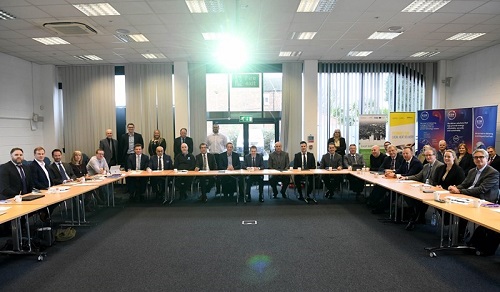Other recommendations outlined in the report include incentives for companies to implement energy efficiency measures, and longer-term interventions including government and industry coming together to address some of the built-in flaws in the UK’s complex energy markets.
The business-led taskforce was set up as an independent commission by the Mayor and tasked with identifying the businesses most affected by the energy crisis, what challenges they were facing and the scale of the impact, and what immediate actions could be taken at a regional level to address those issues and protect them for the future.
Also among its recommendations is the establishment of a national Centre for Manufacturing Transition (CMT) in the West Midlands to support mid-sized manufacturers nationally through the energy cost crisis and the transition to net zero, and to make sure the economy is more resilient to any future crises.
The establishment of the CMT recognises the West Midlands’ strength in manufacturing, which also makes the region the most vulnerable to energy price shocks.
The report notes that West Midlands businesses paid £4.4 billion in energy costs over the past year, rising by the equivalent of a two per cent reduction of regional output. 14 per cent are facing energy costs exceeding 20 per cent of their turnover and 30 per cent remain locked into fixed tariffs more than three times pre-crisis rates.
Among the most affected are those in manufacturing and hospitality, which together employ over 500,000 people.
Matthew Rhodes, West Midlands Industrial Energy Taskforce chair, and Andy Street, Mayor of the West Midlands and chair of the WMCA, centre, at an energy costs summit in March this year held as part of the taskforce's work.
The taskforce began its work in August 2022 following an emergency summit on industrial energy costs initiated by Mike Wood, MP for Dudley South, and the Black Country LEP, and convened by the Mayor in August 2022. The summit was attended by over 30 West Midlands industrialists and the then-energy minister, Greg Hands MP.
Membership was drawn from the region’s businesses and trade associations. Evidence was taken from over 100 individuals and organisations and discussions held with the Department of Energy Security and Net Zero (DESNZ), the Treasury, the National Infrastructure Commission, and representatives from the energy sector.
Responding to the taskforce’s report and recommendations, the Mayor said: “I am extremely grateful to Matthew Rhodes and all the taskforce members for undertaking such a thorough and rapid review of the implications on the energy crisis on those businesses hardest hit.
“The report recognises the importance of taking action in the medium and long-term to address system failures so we don’t face these issues again, but just as crucially it identifies measures we can put in place to help businesses now.
“That’s why in the short term I have already spoken to many of the leading energy companies, alongside the Secretary of State, as I push for punitive energy deals to be scrapped or renegotiated to protect West Midlands businesses. Whilst in the longer term I will work with industry leaders and central Government to make sure the taskforce’s recommendations become a reality: including the creation of the National Centre for Manufacturing Transition here in the West Midlands. We were the home of the industrial revolution, and I’m determined we’ll lead the green industrial revolution too.”
Matthew Rhodes, chair of the West Midlands Industrial Energy Taskforce and managing director of Camirus Limited, said: “The work of the taskforce has lifted the lid on the workings of the commercial energy market in the UK and exposed how it can easily undermine the competitiveness of West Midlands businesses and put good companies across the economy at risk. These failings have been hidden for too long because energy prices have been relatively unchanging.
“Now that the shocks of the past year have shown us how easily actions the other side of the world can work through energy markets to destroy good jobs and businesses in the West Midlands, it is up to us to do something about this.
“One encouraging thing that I took away from leading this work, though, was that everyone – including the energy companies themselves – recognise that there are serious issues here and want to help put things right. Much of the damage is being caused unwittingly by a system that is simply too complex and has too many opportunities for unintended consequences and accidental victims.
“There is a genuine will to work together to prevent the same thing happening again, and I’m delighted the Mayor is supporting the new Centre for Manufacturing Transition.”
Read the report and the full set of recommendations at www.wmindustrialenergy.co.uk/final-report.
Find out more about the taskforce and its recommendations, including the Centre for Manufacturing Transition, by emailing [email protected].































